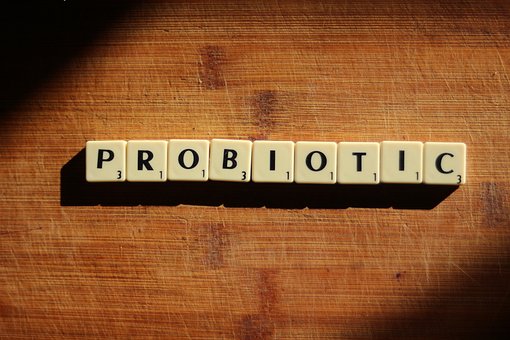
You can significantly boost your mental wellness by nourishing your mind with the right nutrition. Start by prioritizing whole foods like fruits, vegetables, and lean proteins, which stabilize your mood and improve brain function. Omega-3 fatty acids in fish like salmon and flaxseeds are essential for neurotransmitter production, enhancing mood stability. Minimize refined sugars and processed foods to reduce mood swings and combat anxiety. Don’t overlook the power of the gut-brain axis—maintaining a healthy gut with fiber, probiotics, and prebiotics leads to better emotional health. Implementing these dietary choices provides further insights into nurturing your mental well-being.
Nutrition and Mental Health
When it comes to your mental health, what you eat really matters. Nutrition and mental health are deeply intertwined, and it’s important to make mindful choices to support your mood and cognitive function. Diets high in refined sugars are notorious for increasing the risk of mood disorders. On the flip side, consuming whole foods can work wonders for your well-being. Whole foods, like fruits, vegetables, and lean proteins, act as powerful allies in mood regulation and fighting inflammation in the brain, which is linked to mental health struggles. Some foods and beverages, like green tea, may also contribute positively due to their rich antioxidant content and potential for fat loss, ultimately supporting mood and mental wellness. Pay close attention to omega-3 fatty acids; they’re crucial for neurotransmitter production and keeping your mood balanced. A deficiency in these nutrients can escalate symptoms of depression and anxiety. That’s where the famous Mediterranean diet enters the spotlight. Rich in omega-3s and other essential nutrients, it promotes emotional resilience and lowers the risk of anxiety and depression compared to typical Western diets. Additionally, there’s a fascinating gut-brain connection to consider. Since most serotonin, a key mood-regulating neurotransmitter, is produced in your gut, nourishing it with proper nutrition is vital for optimal mental health. Make these dietary changes, and you’ll likely see a positive shift in your mental wellness.
The Gut-Brain Axis
Understanding the gut-brain axis shines a spotlight on how closely our digestive system and mental health are linked. This fascinating connection shows it’s not just about what you eat, but how your gut communicates with your brain through neurons, hormones, and signaling pathways. Remarkably, about 90% of serotonin—key for regulating mood—is produced in your gut. This emphasizes the vital role it plays in your emotional well-being. Stress not only affects how you feel mentally, but also alters hormone levels that influence appetite and digestion, highlighting the critical relationship between stress and gut health.
- Gut Health: A healthy gut microbiome supported by fiber, prebiotics, and probiotics can dramatically improve your mood regulation.
- Imbalances: An unbalanced gut microbiome increases risks of depression, anxiety, and cognitive decline.
- Diet Choices: Traditional diets rich in whole foods can lower depression risks by 25% to 35%, compared to a Western diet.
- Serotonin Production: Addressing your gut health aids the production of essential neurotransmitters like serotonin.
- Bidirectional Communication: The gut-brain axis shows nutrition and mental well-being are interdependent.
Your balanced diet isn’t just about physical health—it’s the cornerstone of mental wellness too. By ensuring your body receives the necessary nutrients to function optimally, you’re promoting a foundation that may fend off mental health disorders, sustaining your overall emotional well-being.
Essential Nutrients for Mind

Nourishing your mind often begins with the essential nutrients you consume daily. Omega-3 fatty acids, found in salmon and walnuts, are vital for brain health. They help improve neuron function and mood regulation, reducing your risk of mood disorders. For optimal neurotransmitter production, you need B vitamins, like B12 and folate. Without them, you might experience increased depressive symptoms and cognitive decline. Coffee, a daily staple for many, can enhance brain function, improving mood and cognitive performance by boosting dopamine and norepinephrine.
Antioxidants, such as vitamins C and E, protect your brain cells from oxidative stress, a factor in cognitive decline and mood disorders. So, filling your plate with various fruits and vegetables is a powerful step towards maintaining mental wellness. Meanwhile, magnesium is crucial for regulating mood and neuronal activity. Studies suggest that low magnesium levels can increase anxiety and depression risks, so it’s a nutrient not to overlook.
Equally important is maintaining a healthy gut microbiome. Consuming a diet rich in fiber, prebiotics, and probiotics supports this, enhancing mood and emotional regulation through the gut-brain axis. By prioritizing these nutrients, you’re not just feeding your body but actively supporting and nourishing your mind, paving the way for more robust mental wellness. You’ve got the tools—use them wisely!
Managing Stress With Diet
Building a diet that supports mental wellness goes hand-in-hand with reducing stress through mindful food choices. Start by embracing nutrient-rich foods to help combat inflammation and elevate your mood. Omega-3 fatty acids, found in fatty fish like salmon and sardines, are known for their powerful role in reducing inflammation and regulating your mood. This can ultimately help lower stress levels. Include complex carbohydrates, such as whole grains, to stabilize your blood sugar levels. This helps prevent the mood swings and irritability that sudden energy drops can cause.
Fruits and vegetables rich in antioxidants are your allies against oxidative stress, which can spike anxiety and stress responses. Embrace mindful eating practices to truly appreciate your meals; focus on the textures, colors, and flavors. This approach promotes a healthier relationship with food, reducing mental stress.
Consider the following nutritional stress-relief strategies:
- Incorporate omega-3-rich foods to combat stress-induced inflammation.
- Choose whole grains to keep your mood stable.
- Load up on antioxidant-packed fruits and vegetables.
- Practice mindful eating to enhance your stress-awareness.
- Consider magnesium and vitamin D supplements to support mental health.
Foods Boosting Brain Health

Enhancing your brain health can be as simple as making the right food choices. Delve into the world of fatty fish, such as salmon and mackerel. They’re packed with omega-3 fatty acids, crucial for neuron function that supports mood and cognitive performance. Moving to your greens, dark leafy options like spinach and kale aren’t just for salads. Rich in folate, they support brain health and could even reduce symptoms of depression and anxiety.
Let’s not forget the power of antioxidants in berries like blueberries and strawberries. These fruits fight oxidative stress, instrumental in lowering cognitive decline risks while boosting brain function. And when you reach for a snack, consider nuts and seeds, particularly walnuts and chia seeds. They provide magnesium and healthy fats, crucial for mood stability and decreasing anxiety.
Add a touch of spice with turmeric, which contains curcumin, to stimulate brain-derived neurotrophic factor (BDNF), supporting neuron growth. Through nutritional psychiatry, you can leverage these foods to foster brain health and elevate your mental wellness. By reshaping your diet, you’re not just feeding your body — you’re nourishing your mind.
Omega-3 and Mood Balance
Imagine a simple change in your diet that dramatically boosts your mood and mental health: omega-3 fatty acids. Found in fatty fish like salmon and mackerel, these essential fats play a pivotal role in mood regulation, enhancing your mental wellness by maintaining neuron function. Studies show that a higher omega-3 intake links to lower rates of depression and anxiety. They work wonders by reducing inflammation in your brain, an anti-inflammatory effect that stabilizes your mood and boosts cognitive function.
Incorporating omega-3s into your diet can lead to a 50% reduction in the risk of developing mood disorders. These benefits emphasize their protective role in mental wellness. The two primary omega-3s, EPA and DHA, are champions in enhancing serotonin production, a crucial neurotransmitter for mood regulation. Research supports that taking omega-3 supplements, particularly EPA at 1,000 mg daily, can significantly alleviate depressive symptoms.
To improve your mental health, consider:
- Eating fatty fish like salmon and mackerel regularly.
- Choosing omega-3-rich foods such as walnuts and flaxseeds.
- Consulting your healthcare provider about omega-3 supplements.
- Reading labels to find high-EPA supplements.
- Incorporating omega-3s into a balanced diet for overall wellness.
Role of Antioxidants

Having incorporated omega-3s for mood enhancement, you can further bolster your mental wellness by focusing on the role of antioxidants. Antioxidants, like vitamins C and E, are pivotal in protecting your brain cells from oxidative stress, which can otherwise lead to cognitive decline and mood disorders. By adding foods rich in antioxidants, such as berries, dark leafy greens, and nuts, to your diet, you significantly reduce oxidative stress markers, promoting mental well-being.
Research shows that a diet abundant in antioxidants can lower the risk of developing depression and anxiety. It does so by combating inflammation and restoring cellular health, which are crucial for emotional balance. Incorporating these foods into your meals isn’t just about staving off decline; it actively supports your overall brain health and improves memory and cognitive function.
Moreover, regular consumption of antioxidant-rich foods enhances the gut-brain axis. This connection plays a vital role in emotional regulation and fortifying your resilience against stress. By focusing on antioxidants, you’re taking a decisive step toward nurturing your mental well-being and ensuring a future of vibrant brain health. Embrace these powerful nutrients for a more balanced and healthy mind.
Blood Sugar Stability
Managing your blood sugar levels is not just about preventing diabetes; it’s also crucial for maintaining mental wellness. When you consume high refined sugars and processed foods, your blood sugar spikes, leading to irritability, mood swings, and fatigue. Over time, these fluctuations can directly impact your mental health, contributing to mood disorders and emotional instability.
Prioritize complex carbohydrates, lean proteins, and fiber-rich foods to keep your blood sugar stable. This approach ensures consistent energy levels and emotional resilience throughout the day. By focusing on balanced meals, you’ll notice improvements in your cognitive function and overall mental health.
Consider making these dietary changes to support your mental wellness:
- Incorporate whole foods into your meals to naturally regulate blood sugar levels.
- Minimize processed foods to reduce harmful blood sugar spikes and crashes.
- Opt for complex carbohydrates, such as whole grains, to provide sustained energy.
- Include lean proteins to maintain stable blood sugar and support brain health.
- Embrace fiber-rich options to slow sugar absorption, promoting emotional stability.
These small changes can lead to profound benefits in your mental health, reinforcing the connection between a nutritious diet and emotional wellness.
Combating Inflammation With Food

While regulating blood sugar levels lays the groundwork for mental wellness, addressing inflammation through nutrition is equally important for maintaining a healthy mind. Chronic inflammation can wreak havoc on your mental health, contributing to disorders like depression and anxiety. Making smart dietary choices is crucial in mitigating these effects.
An anti-inflammatory diet is your ally in reducing inflammation and boosting brain function. By incorporating a variety of fruits, vegetables, and whole grains into your meals, you provide your body with essential nutrients and antioxidants that fend off inflammation. Don’t overlook the power of omega-3 fatty acids, found in fatty fish like salmon and in nuts, which are known to counteract inflammatory processes.
Steering clear of inflammation-inducing ingredients is just as vital. Refined sugars, trans fats, and processed foods may be convenient, but they exacerbate inflammation and harm your mental health. Opt instead for fresh produce and whole, minimally-processed foods.
Through regular consumption of anti-inflammatory foods, you can alleviate depressive symptoms and enhance your overall well-being. Transform your diet, and you’ll likely notice a positive shift in your mental clarity and mood—because what you eat truly matters for your mental health.
Mindful Eating Practices
To truly harness the benefits of your diet for mental wellness, start by embracing mindful eating practices. This approach involves paying close attention to every aspect of your eating experience, leading to healthier dietary choices and a healthier mind. By being present at mealtime, you increase your awareness of hunger cues and savor every bite, which not only aids digestion but also helps you recognize when you’re full.
Mindful eating has been shown to reduce emotional eating, as it encourages a more connected and fulfilling relationship with food. This shift can significantly improve your overall mental well-being and steer you away from disordered eating patterns. Furthermore, by focusing on each meal, you can cut down on stress and anxiety, adopting a more peaceful approach to eating rather than resorting to mindless consumption.
To make the most of mindful eating, consider incorporating these practices:
- Turn off distractions, like phones or TV, during meals.
- Take small bites and chew slowly.
- Pause between bites to appreciate flavors.
- Pay attention to texture and taste.
- Reflect on your hunger and fullness levels regularly.
These practices promote a positive relationship with food, ultimately supporting your journey to mental wellness.
Impact of Emotional Eating

As you cultivate mindful eating habits, it’s important to understand how emotional eating can undermine your mental wellness efforts. When emotions dictate your food choices, you’re likely reaching for high-calorie, low-nutrient foods. This poor diet doesn’t just affect your waistline; it significantly impacts your mental health too. Studies show that indulging in emotional eating can increase anxiety and depression. Your food choices matter, and a poor diet can create a vicious cycle, exacerbating these mental health issues.
Emotional eating often leaves you feeling guilty or ashamed, as it disrupts your body’s natural hunger cues and leads to overeating. Breaking this cycle is crucial. You shouldn’t rely on food for comfort. Instead, consider how nutritional psychiatry highlights the benefits of a balanced diet. By choosing foods rich in nutrients, you can stabilize your mood and reduce the urge to eat emotionally, fostering better mental well-being.
Mindful eating practices are an effective strategy. Recognize your emotional triggers and develop healthier coping mechanisms. By doing so, you’ll diminish the pattern of seeking solace in food and enhance your overall mental health. Prioritize nourishing your mind by making conscious, healthier food choices.
Resources for Further Learning
When it comes to enhancing your understanding of the powerful connection between nutrition and mental health, diving into well-crafted resources can be your best move. The right tools can transform your journey to mental wellness, by blending education and community support. Here’s where you can start:
- “The Mind-Gut Connection”: Explore how the microbiome influences your emotional well-being through insightful narratives.
- “This Is Your Brain on Food”: Discover actionable dietary strategies that nurture mental health, crafted by experts in the field.
- SAGE Therapy Blog: With a wealth of articles focusing on nutrition and wellness, it’s an invaluable resource for continuous education.
- Community Support Groups: Engage with others to share experiences and knowledge, strengthening your mental health journey with community support.
- Professional Guidance: Connect with clinicians who specialize in the gut-brain connection for personalized recommendations to enhance mental wellness.
You’ve got the opportunity to delve deeper into these materials, which provide a comprehensive look at how nutrition affects mental health. With the backing of professional guidance and a robust education, you can optimize your mental health strategy and experience substantial enhancements in how you feel and think.
Reflect on Dietary Choices

Reflecting on our dietary choices reveals a profound connection between what we eat and our mental wellness. By embracing a balanced diet abundant in whole foods such as fruits, vegetables, and whole grains, we can significantly reduce inflammation and bolster optimal brain function. In contrast, diets high in refined sugars and processed foods have been linked to mood disorders and impaired cognitive abilities. Moreover, nutritional deficiencies, particularly low levels of omega-3 fatty acids and B vitamins, are associated with elevated risks of depression and anxiety, underscoring the importance of maintaining a nutrient-rich diet.
The journey toward mental wellness through nutrition begins with mindful consumption and a conscious awareness of food intake. This fosters a healthier relationship with food and can profoundly enhance emotional well-being. By regularly monitoring our dietary habits, we can identify patterns that impact both our physical and emotional health, ultimately guiding us toward better choices for improved mental wellness. This holistic approach to eating not only supports cognitive function and mood stabilization but also empowers individuals to take control of their mental health through thoughtful dietary practices. As we recognize the power of nutrition in shaping our mental and emotional landscapes, we equip ourselves with the tools needed for a healthier, more balanced life.














